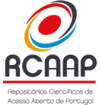Teacher education in times of pandemic
DOI:
https://doi.org/10.21814/h2d.2910Keywords:
teacher education, pandemic, virtual environmentAbstract
The teachers’ workload in Brazil is very high, and the time allocated by law for continuing education, although it exists, in practice it does not happen with the quality that it should due to countless factors. Among these factors, there is the difficulty in bringing teachers together to carry out group training. However, during the time of the pandemic, the opportunity has been created to solve the dilemma of lack of time, using remote meeting applications as a solution to the chronic problem of the difficulty for reconciling everyone's schedules. Thus, this experience report presents how a group of teachers from a municipal public child education, in a city in the south of Brazil, took advantage of the social distance imposed by the COVID19 pandemic to start solving, in the virtual environment, the problem of teacher education. The team's narratives, taken from the virtual platform, point out to the importance of a continuing educational program that takes into account the specifics of each institution. The excellent results of the online experience show the importance of rethinking spaces and times, so that, in fact, the training processes are carried out.
Downloads
References
Nóvoa, A. (2017). Firmar a profissão como professor, afirmar a profissão docente. Caderno de Pesquisas. v. 47, n. 166. http://dx.doi.org/10.1590/198053144843.
Portaria n. 826, de 7 de julho de 2017. Dispõe sobre o Pacto Nacional pela Alfabetização na Idade Certa PNAIC, suas ações, diretrizes gerais e a ação de formação no âmbito do Programa Novo Mais Educação PNME. Recuperado de http://pacto.mec.gov.br/images/pdf/legislacao/portaria
Resolução CNE/CEB nº 5, de 17 de dezembro de 2009. Fixa as Diretrizes curriculares nacionais para a educação infantil (2010). Recuperado de http://portal.mec.gov.br/dmdocuments/rceb005_09.pdf
Resolução CNE/CP nº 2, de 22 de dezembro de 2017. Institui e orienta a implantação da Base Nacional Comum Curricular. Recuperado de http://basenacionalcomum.mec.gov.br/
Resolução nº 2, de 1º de julho de 2015. Define as Diretrizes Curriculares Nacionais para a formação inicial em nível superior e para a formação continuada.
Saviani, D. (2011). Formação de professores no Brasil: dilemas e perspectivas. Poíesis Pedagógica, 9(1), 07-19. https://doi.org/10.5216/rpp.v9i1.15667
Weiler, J. M. A. (2015). Diálogo entre a escola e o saber-fazer de uma comunidade tradicional: possibilidade de transição para um espaço educador sustentável. Dissertação de mestrado, Universidade do Vale do Itajaí, Brasil.
Downloads
Published
How to Cite
Issue
Section
License
Copyright (c) 2020 H2D|Digital Humanities Journal

This work is licensed under a Creative Commons Attribution 4.0 International License.






